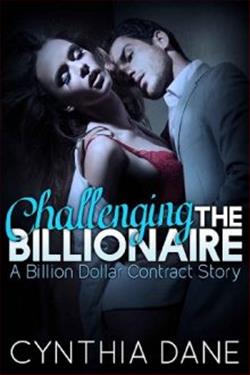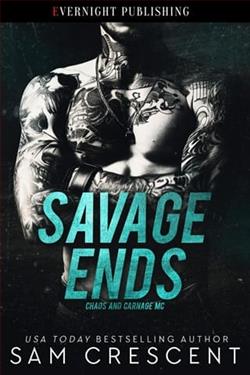Page 62 of Marked By Him
I dig through what little food I have on hand—eggs, some green onions, some kimchi, and soy sauce. Enough to make a simple Korean breakfast.
Monroe finally gets up off the futon and drifts closer. I feel her eyes on me while I cook, curious but cautious.
“You really never cook?” she asks.
“Very rarely,” I answer, cracking an egg into the pan. “You’re the first person to make me use this stove for something other than boiling water.”
“Don’t I feel special.”
“You should. It’s an accomplishment.”
She almost smirks, then fights it off with a shake of her head.
We fall silent to the sounds of cooking in the kitchen. The sizzle of the oil and the clink of utensils. I split the food between two bowls and set hers in front of her at the barstools. She stares at it like she wasn’t expecting anything remotely edible.
“You were expecting slop?” I ask.
“Well, you didn’t exactly sell your cooking skills.”
“That’s true. Only because there’re few things I hate more than cooking. But I learned how from a young age,” I admit. I slide onto the stool next to hers. “At the orphanage I grew up in, each child had an assigned chore. Mine was the kitchens.”
“I… didn’t know you grew up in an orphanage.”
“I don’t mention it often. It’s irrelevant.”
“Most people say their childhood is quite relevant,” she counters smartly, scooping up some of the rice and fried egg. “It helps shape who we become.”
“Most people focus too heavily on the past. I’m not one of those people.”
An awkward silence develops between us as her spoon clangs against the bowl and we eat the breakfast I’ve prepared in silence. By the furrow of her brows, I can tell Monroe doesn’t agree with what I’ve said; she’s simply decided to drop it.
But it’s obvious she’s still upset by something. Her mood is duller than usual.
I’m not sure why I should care, yet I find myself compelled to keep her talking. Strike up another conversation.
“You teach at Suyeong Academy, right?”
She pauses mid-bite, startled. “How did you know that?”
“I made it my business to know many things about you.”
“Oh yeah. Right. You stalked me for a couple of weeks as you plotted to kill me.”
“When you say it like that, it sounds very bad,” I say dryly.
She casts me a scrutinous look. “Is that another one of your jokes no one gets?”
“Actually… yes.” At her eye roll and shake of her head, I pivot back to the topic I’d chosen. “You really enjoy working with children, or is it just for the money?”
“No one becomes a teacher for the money. Absolutely no one.”
“Fair point.”
“Why wouldn’t I like working with children?”
I shrug. “They’re loud. Sticky-fingered. Irritating and restless.”
“Don’t you remember what it was like to be a kid?” she asks, laughing softly. “Or was the dangerous, deadly, tattooedcriminal gangster Jin never really a child? Were you a seven-year-old gangster hitting up kids for their milk money?”















